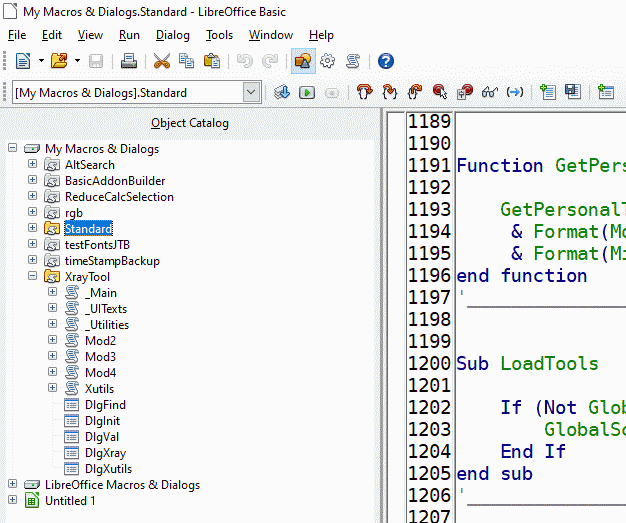I’m creating a macro. I’d like it to be in a separate library than “Standard,” But my calc document can’t seem to find it.
I create a simple macro in the Standard Module1:
Public Function ATest()
ATest = "Success"
End Function
And put =ATEST() in my calc sheet, I get, as expected, “Success”.
If, however, if I create a new library and put the identical code into a module there, I just get #VALUE!.
But that error implies that calc at least knows that function exists. If I change the cell in my calc csheet to =TESTX(), instead I get #NAME!.
So obviously calc recognizes the name, just for some reason won’t run the macro.
I’ve set macro security to allow everything, and that doesn’t help. So that isn’t the issue.

